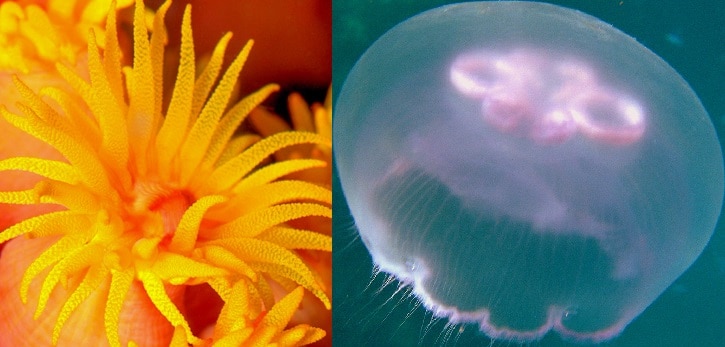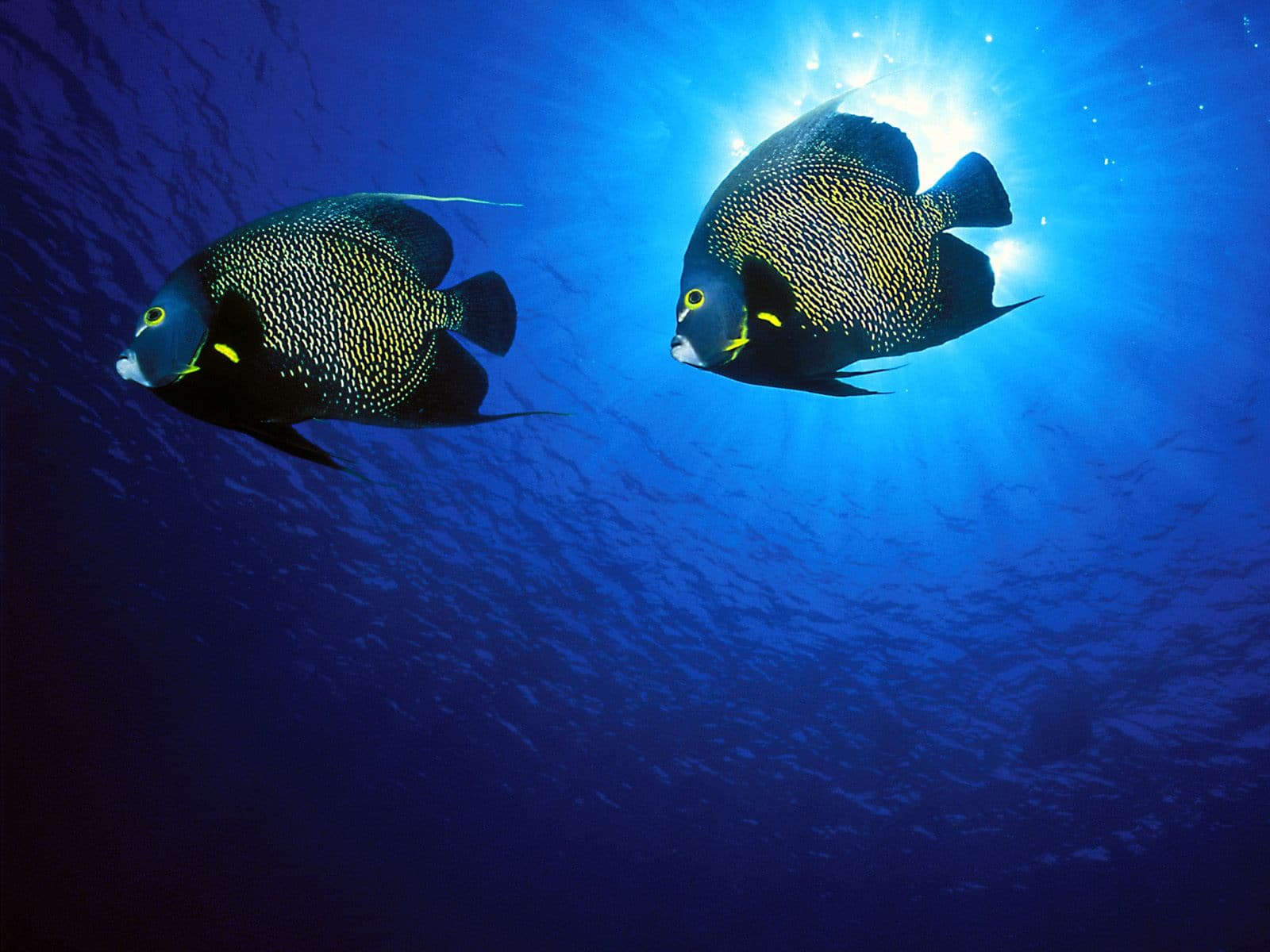Fact Friday

Some cnidarians switch between a polyp and a medusa body form. Corals and anemones only have the polyp stage. Jellyfish, as we think of them, are in the medusa stage, but they have a polyp stage when they are juveniles. Hydrozoans have the opposite: their adult form is a polyp, but they have a juvenile medusa stage.
Photo Credit: KSLOF, Rob Martimbeault

May 30, 2025
French Angelfish
“Til death do us part.” It’s common to find fish that mate for life in a coral reef ecosystem. French angelfish exhibit permanent, monogamous breeding pairs. Mating for life comes with benefits. These fish cooperatively feed and defend their territory from other fish. This is much easier to do with two fish, rather than one.
Photo Attribution: French Angelfish by Thundafunda [C BY-NC-ND 2.0 (https://creativecommons.org/licenses/by-nc-nd/2.0/)] 7 April 2020 via Flickr. https://flic.kr/p/6ubYnw




